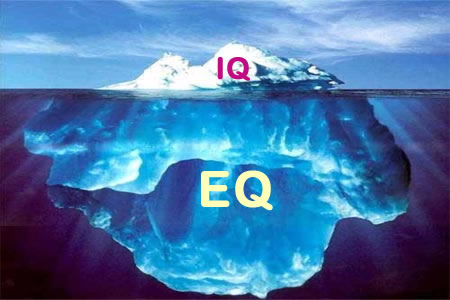Leading has much more to do with relationships than most hard driving, task driven, get it done leaders will ever admit. This is one the factors that makes leadership more of a complex art than simple set of skills. That is why the best leaders have the ability to make people feel heard, valued, as though we can trust them, and that we actually want to follow them where they’re going. Believe it or not, a lot of it has to do with their level of Emotional Intelligence (or E.Q.).
Emotional Intelligence = Effective Interpersonal Relationships
Which is the combination of being simultaneously self-aware and others focused.
The best leaders don’t simply spend time on learning new management or organizational theory. The best leaders spend time on becoming better at the art of leading through relationships. After all relationships are both the glue and the grease that make work, happen.
Last month I had the opportunity to hear Tim Tassopoulos, Senior Vice President of Operations for Chick-fil-A, give a leadership talk on “Improving your Emotional Intelligence Quotient.” Below are some of my take-aways…
1. Make it Personal
Your team members want to be known, and even though you’re their boss, they want to be known by you! So if you don’t already, get to know the names of your Staff and get to know information about their families, hobbies, interest, and goals.
2. Pay Attention
Learn how to ask good open-ended questions, schedule one on one time with your team members, and then practice active listening and watch for what’s being communicated non-verbally.
3. Be a Gift Finder vs a Gap Finder
We all know it, criticism is a killer. So give your team members the benefit of the doubt and choose to believe the best! Learn the art of propping up what they do well instead of tearing them down in the areas they are deficient in.
4. Cheer First Downs not just Touchdowns
Every time Walter Payton carried the ball he knew he was going to get knocked down about every 4 yards or so. So what makes that guy keep getting back up? The first down marker. First downs help your team feel as though they’re making progress. By the way if you’re doing this one well there should never be any surprises when it comes to annual evaluations.
5. Seek First to Understand & then to be Understood
Conflict will happen it’s a part of working with people. When it comes your way make sure you avoid “right fights.” You know the ones, “I’m right!” “No, I’m right!”
6. Don’t Assume Motive
The #1 error made in disagreements is that the other person’s motives are the problem, or what has been referred to as “The Fundamental Attribution Error.” The only antidote is to expect the best.
7. Make it Fun
This one is simple, people want to work with people who they have fun with.


Leave a Reply to Paul Alexander Cancel reply